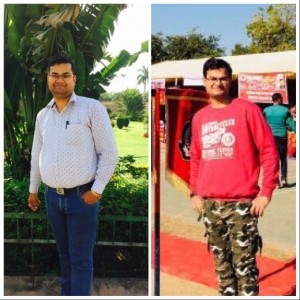Empowering Practices
What can we do to create an environment of growth and well-being? To build resilience within ourselves and others? To encourage connection and autonomy? Here are few things each of us can do depending upon the roles we play:
- Invest in relationships
Most people in their 20s, 30s and even in their 40s are busy chasing material wealth along with all the material things that constitute the idea of success in our society. But as mentioned in Part I of this blog, human connection is at the heart of our happiness. To nurture these relationships, try and plan for time with your friends and family, listen deeply and use every opportunity to tell your loved ones how much you love them, not just because it will make them happy but also because it may remind people that they are not alone after all. You never know what magic your words and actions set off.

- Disconnect from social media
Spending a few hours on social media every now and then, every day, may seem like a harmless habit. But it is harmful in more ways than one. One of the more obvious effects of social media is that by its very nature it compels you to compare yourself with others, leaving most users feeling inadequate, isolated and unhappy. Secondly, social media aims to encourage the behaviour of seeking validation. Once you become dependent on external validation, it is almost impossible to experience any peace of mind or keep up your motivation to get through important tasks on your own. Thirdly the only way for social media companies to leverage these virtual platforms is by ensuring that people use it often and for longer periods of time – these platforms are designed to be addictive.
If you haven’t realised it already, then you would like to know that our capability to focus and pay unwavering attention to the tasks we do, is the single most important skill that allows us to grow and progress in our personal and professional life. Consequently, social media when used indiscreetly can strip us of this valuable ability to focus, learn and grow. Use it with care.

- Take care of your body
Body is the only home you have– Mind and body are connected and your body is designed to be used for tasks that activate the muscles. Today’s sedentary lifestyle is hazardous for your health. Imagine a fully powered sports car sitting in the garage. What would happen to it if it is never taken for a ride? It would rust, deteriorate and even become non-functional after a few years. We are no different. The mantra “use it or lose it” is quite apt when it comes to our physical fitness.
Get moving – do yoga, go for walks, hit the gym, play a sport, engage in domestic chores, join a trek, practice dance – do whatever it takes because those muscles and joints need the movement to keep you not just physically but also mentally fit. Besides strengthening the body, physical exercise also helps your brain release endorphins which makes your mind sharper, improves your memory and makes you feel good about yourself.

- Connect with yourself every day
Personal and professional responsibilities, big and small, leave most of us with precious little time for ourselves and whatever little time we do get, gets used up in checking messages, watching mindless TV, browsing the internet or surfing the social media sites. One of the reasons why a lot of us feel disconnected despite being so connected through technology is because we don’t etch out time for introspection – there’s no time to reflect on our daily experiences.
Just like each of us schedules time for personal hygiene, it is important that we make time for emotional and mental hygiene each day. It will not only help us to feel grounded but will also help us to learn and grow as the days come and go, rather than life passing us by in a blur. If possible maintain a notebook to jot down your thoughts about the important events of the day before going to bed or then just do a quick mental review, without getting drawn into over-analysis. Daily practices of mindfulness, even for 20 minutes a day, go a long way toward helping us sleep better and experience a sense of peace.
- Explore your interests and strengths
Each of us has come into this world with our unique strengths, talents and skills and our most important duty in this lifetime is to use and hone those gifts productively because that’s the only way we can truly and authentically contribute to the world. Pay attention to the tasks that you find interesting and easy to do. These have to be things where you bring something into the world or something that helps your mind grow. Playing video games and watching Television doesn’t count!
Whatever activity it may be, it doesn’t matter whether others consider it valuable or not. These may include doodling, dancing, writing poetry, making origami, acting, compiling letters, writing articles, sketching, painting, growing mushrooms, training or grooming pets or a million other things that you can choose from. Whatever it is, just spend some time doing it and getting better at it every day; if not every day then every other day. Once again, if you don’t schedule time, you will never find the time. Spending even 10 minutes every day in your area of interest/strength is better than waiting for the day when you have 2 hours to spare for that activity. With this simple change, you will find yourself blossoming in ways you didn’t imagine possible!
- Set goals
“Dreams don’t come true, goals do”
We could keep dreaming about a better life and not a thing would change unless we get up and take action. Goals do just that, they push you into action; they remind you about things that are important to you, they awaken you to the reality of time slipping through your fingers. How many times have you thought that you want to learn something only to realise that even 5 years down the line you haven’t taken any initiative towards the learning? Or you said you want to be a morning person and find yourself waking up after 8 am day after day? Just wishing that your circumstances would change will not cut it. Our mind requires a timeline, clarity, measurability and a constant reminder. Set goals for anything that’s important to you, be it relationships, art, work, interest or a lifestyle. And make sure that these goals are YOURS and not set because others think it is important for you. When there is a purpose to your day, you will see yourself get more effective, efficient and happier.

- Learn to say “no”
I recently had a client who was unhappy because he just could not walk up to people and say what was on his mind. He would keep worrying that he would be taking up their valuable against their will. After some more discussion, it became apparent that the root cause of this challenge was that he himself would never turn away people who made excessive demands on his time.
Innumerable people who feel taken for granted or unvalued do so because they inadvertently end up making themselves available for every small need that others have. Partly our culture may be to blame for this ingrained habit of putting others’ needs ahead of ours. This is not to say that you should selfishly cater only to your own needs, but just like you take care to respect others’ time and needs, you must practice respect for your own needs and time.
Once the consciousness sets in that you always have the option of saying “no” to a request, it will become easier to practice it. Start with smaller requests and before you agree to anything check with yourself if you are also being considerate to yourself. Setting boundaries without a doubt is a significant way in which we can improve our sense of self-worth and self-esteem.
We all aspire to live happy meaningful lives and do not consciously choose to be miserable. At the same time, difficulties and disappointments are an integral part of life. Ending one’s life is not just a random decision people arrive at, rather it is a desperate act resulting from acknowledged and unacknowledged fears, anxieties, disappointments and a hoard of other emotions that may feel overwhelming.
People need to be empowered to understand the fundamentals of living a meaningful life and be equipped to deal with their internal turmoil. It is important to watch out for any signs of abnormal behaviour in our loved ones and let them know that we are available in case they need to speak or just need company. Some empathy, thoughtfulness and gentle care go a long way in bringing people back from the clutches of isolation. Despite that, if someone feels trapped then they should be able to reach out for help from a professional counsellor or psychologist and we must encourage our loved ones to seek help when required.
Like they say ‘charity begins at home’ and hence each of us first needs to focus on living a healthy life ourselves because the important people in our lives are watching and learning from us. We are far more influential than we think, let us infect others with our empowering ways!








